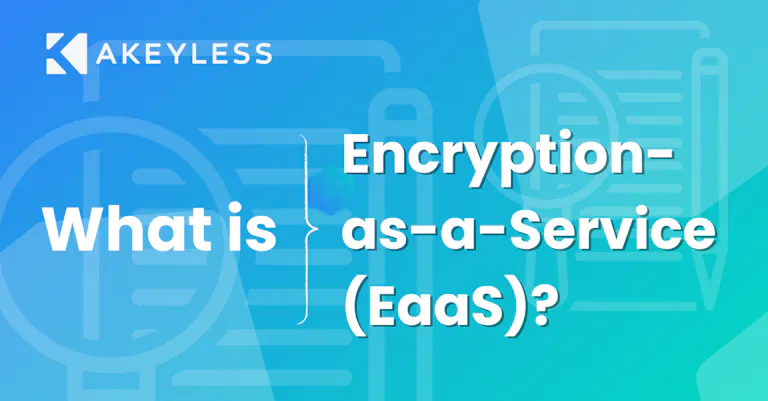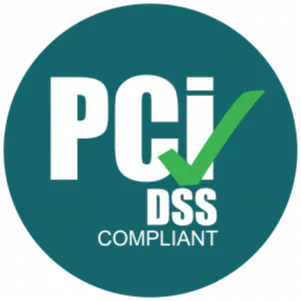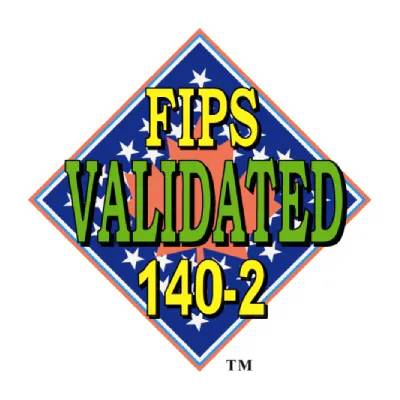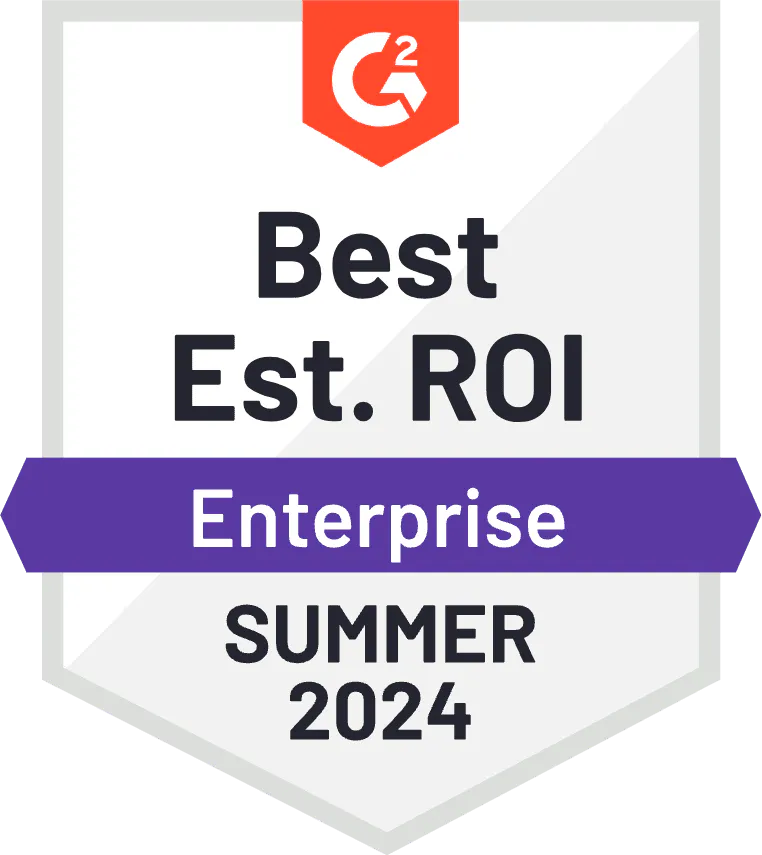Posted by Anne-Marie Avalon
March 22, 2024
What is Encryption-as-a-Service (EaaS)?
Encryption-as-a-Service (EaaS) encapsulates the process of encrypting data, whether at rest or in transit, through a cloud service model. It enables organizations to leverage encryption technologies efficiently, ensuring the confidentiality and integrity of their data. The service is designed to be highly scalable, adapting to the needs of small enterprises and large corporations alike. It allows businesses to implement robust encryption strategies without the complexities of managing the underlying infrastructure.
Key Features of EaaS:
- Simplicity: EaaS simplifies the deployment of encryption, making it accessible to organizations with limited IT resources.
- Scalability:It offers scalability, allowing businesses to encrypt vast amounts of data without investing in additional hardware.
- Cost-Effectiveness: By outsourcing encryption to a service provider, companies can significantly reduce the costs associated with managing encryption in-house.
- Compliance: EaaS helps organizations meet regulatory compliance requirements by ensuring data is encrypted according to industry standards.
The Importance of Encryption-as-a-Service
With the increasing volume of data breaches and cyber threats, securing sensitive information has never been more critical. EaaS offers a robust layer of security by encrypting data at rest and in transit, making it unintelligible to unauthorized individuals. This not only protects the data from external threats but also safeguards against internal vulnerabilities.
Encryption-as-a-Service Challenges
- Complexity in Key Management: Managing encryption keys can be complex and resource-intensive.
- Compliance and Regulatory Hurdles: Ensuring compliance with various data protection regulations requires a comprehensive encryption strategy.
- Performance Overhead: Encryption can introduce latency, impacting the performance of applications.
EaaS and Cloud Key Management
An important component of EaaS is a key management service (KMS), a feature that facilitates the secure management of encryption keys. This system enables businesses to store, rotate, and manage encryption keys with ease, ensuring that encryption remains effective and secure over time. Key management plays a crucial role in maintaining the security of encrypted data in the cloud, as the strength of encryption heavily relies on the secrecy and integrity of encryption keys.
Bring Your Own Key (BYOK) in Akeyless Vaultless Secrets Management
Using BYOK with Akeyless enhances an organization’s ability to protect sensitive data while utilizing cloud and hybrid infrastructures. The Akeyless BYOK capability empowers organizations to uphold the highest standards of data security and sovereignty. This feature enables enterprises to retain complete control over their encryption keys while leveraging Akeyless for streamlined and secure management of these keys.
With BYOK, businesses can import, rotate, and meticulously manage their encryption keys, ensuring that data encryption strategies remain robust and impenetrable over time. The integrity and confidentiality of encryption keys are paramount for safeguarding encrypted data, making BYOK an essential element in fortifying the security posture of data across cloud and hybrid environments.
The Akeyless Platform EaaS Solutions
Akeyless offers Encryption-as-a-Service (EaaS) through its Platform, delivering a comprehensive suite for secrets management, encryption, and key management. This solution is expertly designed to tackle the complexities of securing sensitive data across hybrid and multi-cloud infrastructures.
- Simplified Key Management: With its Distributed Fragments Cryptography™ (DFC), Akeyless offers a vaultless approach to key management, eliminating the complexity and overhead associated with traditional key vaults.
- DFC™technology ensures unmatched security by splitting encryption keys into fragments, making it impossible for unauthorized entities to access the complete key.
- Regulatory Compliance: Akeyless ensures compliance with GDPR, SOC 2, and FIPS 140-2 standards, providing peace of mind for organizations navigating the complex landscape of data protection regulations.
- Optimized Performance: Akeyless’ cloud-native architecture ensures that encryption does not impact application performance, providing a seamless user experience.
- Cloud-Native SaaS: Eliminates the need for on-premises infrastructure, offering a cloud-native SaaS solution that simplifies secrets and key management.
- Multi-Cloud Compatibility: Seamlessly integrates with various cloud providers, enabling organizations to manage keys across different clouds efficiently.
See Akeyless in Action
Akeyless EaaSrepresents a significant step forward in cybersecurity. Learn more about how Akeyless can transform your data security today by trying the platform for free or seeing it in action.
FAQ: Understanding Encryption and Encryption-as-a-Service
What are the three (3) different encryption methods?
The three primary encryption methods are Symmetric Encryption, Asymmetric Encryption, and Hash Functions. Symmetric Encryption uses the same key for both encryption and decryption, making it fast but less secure for data in transit. Asymmetric Encryption, also known as Public Key Cryptography, uses a pair of keys (public and private) for encryption and decryption, enhancing security for data exchanges. Hash Functions convert data into a fixed-size string of characters, which is practically irreversible, providing integrity checks and authentication.
What is the difference between TLS and E2EE?
TLS encrypts data moving between systems, such as a browser and a server. It prevents third parties from reading the data in transit. Yet, the receiving server can decrypt this data. E2EE, on the other hand, encrypts data at its origin. It stays encrypted until the final recipient decrypts it. This ensures not even service providers can access the data, providing greater security and privacy.
Which AWS services support encryption?
AWS offers encryption capabilities across a wide range of its services, including but not limited to Amazon S3 (Simple Storage Service) for object storage, Amazon EBS (Elastic Block Store) for block storage, Amazon RDS (Relational Database Service) for database storage, and Amazon DynamoDB for NoSQL database services. AWS ensures that data can be encrypted at rest and in transit, providing comprehensive data protection.
Is Cloudflare end-to-end encryption?
Cloudflare provides several encryption options, including TLS for data in transit, to protect data moving between a website and its visitors. Cloudflare primarily functions as a CDN and security service. It’s not designed for messaging or data storage, where E2EE is common.For specific applications, Cloudflare supports and advocates the use of E2EE to secure data from the point of origin to the final recipient.
What is the strongest encryption method?
The “strongest” encryption method can vary by use case. However, many consider AES (Advanced Encryption Standard) with a 256-bit key as one of the strongest for symmetric encryption. It’s commonly used to protect sensitive data. For asymmetric encryption, RSA with a key size of 2048 bits or more provides strong security. Encryption strength also hinges on how one implements it and manages the keys.
Akeyless supports various encryption algorithms, including AES and RSA. Specifically, it offers AES-128 GCM, AES-256 GCM, AES-128 SIV, AES-256 SIV, and RSA key sizes like RSA-1024, RSA-2048, RSA-3072, and RSA-4096. This broad support allows users to choose the encryption method that best meets their security and compliance needs.
What is the most commonly used encryption method?
AES (Advanced Encryption Standard), especially AES-256, is the most widely used encryption method. It balances efficiency and security, securing web transactions and encrypting stored data. Its adoption by governments and industries worldwide has cemented its status as the go-to standard for encryption.
















